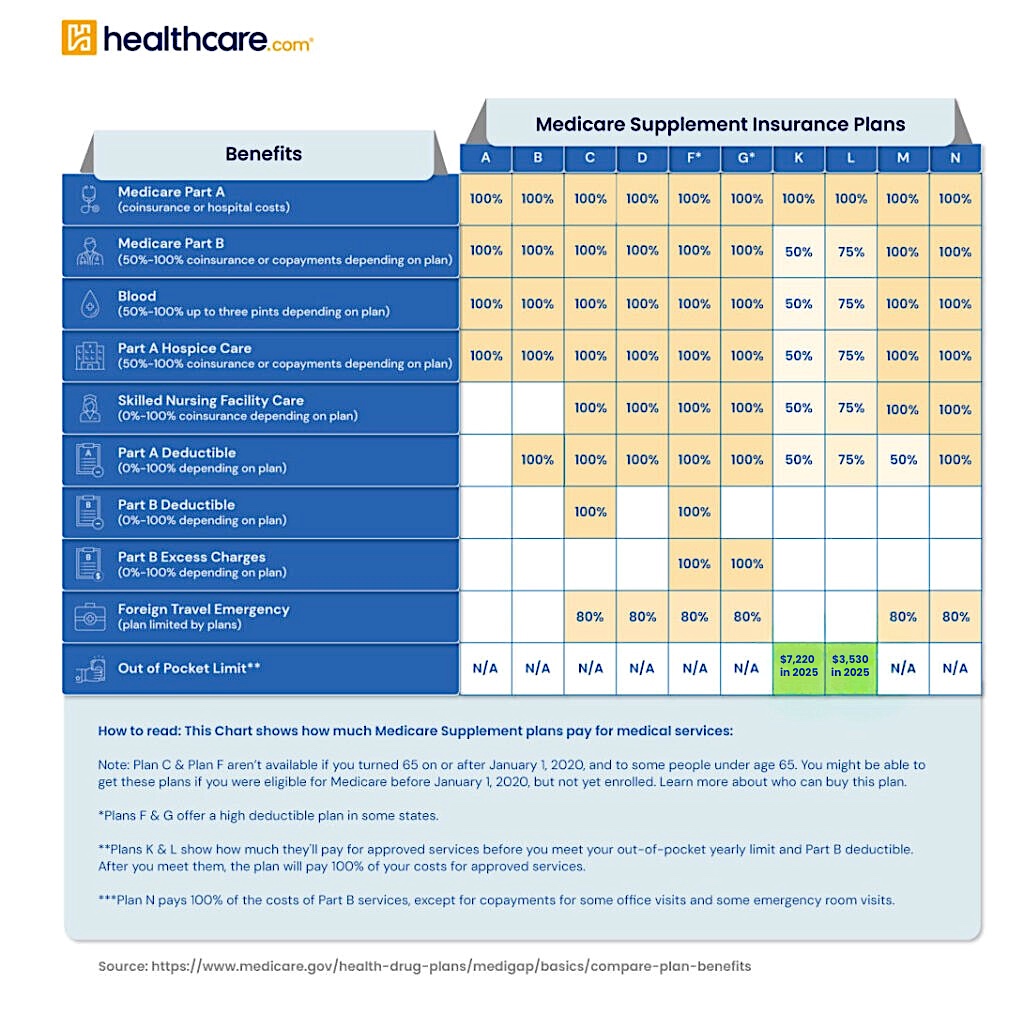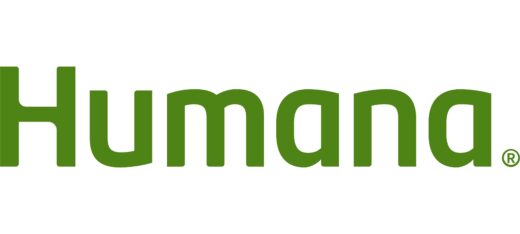Written by Paige Cerulli
HealthCare Writer
We aim to help you make informed healthcare decisions. While this post may contain links to lead generation forms, this won’t influence our writing. We follow strict editorial standards to give you the most accurate and unbiased information.
What You Need to Know
- Medicare Supplement plans, also known as Medigap, help pay for out-of-pocket costs not covered by Medicare Part A and Part B.
- Washington insurance companies must accept your Medicare Supplement (Medigap) plan application if you’re in your Medigap Open Enrollment Period or have guaranteed issue rights.
- The three most popular Medigap policies are typically Plans F, G, and N.
What Are Medicare Supplement Plans in Washington?
Medicare is a federal health insurance program for individuals aged 65 and older, as well as younger people with qualifying disabilities or health conditions (e.g., end-stage renal disease).
Original Medicare, which includes Part A (Hospital Insurance) and Part B (Medical Insurance), covers many healthcare services. However, it still leaves you with out-of-pocket costs like deductibles, coinsurance, and copayments. Medicare Supplement plans help pay for these expenses.
Medigap plans are standardized by letter (A through N). That means Plan A from one company offers the same benefits as Plan A from another, though premiums may differ.
Learn how these plans work and how they benefit residents of Washington.
Compare options HERE & start your health plan journey.
When Can You Enroll in a Medicare Supplement (Medigap) Policy?
You can apply for a Medigap plan at any time. However, outside of your Medigap Open Enrollment Period—or without guaranteed issue rights—insurers may use your health history to deny coverage or charge higher premiums.
Your Medigap Open Enrollment Period lasts for six months. It starts the month you’re both age 65 (or older) and enrolled in Medicare Part B. During this time, insurance companies must offer you any plan they sell at standard rates, regardless of your health.
This is the ideal time to enroll because it gives you the widest choice of plans and the best rates.
Guaranteed issue rights arise from specific situations, like losing other health coverage. If you qualify, insurers must sell you a policy and can’t charge more due to your health status.
Switching Plans: Policyholders may switch Medicare supplement plans year-round on a guaranteed issue basis. Plan A enrollees can only switch to Plan A, while Plans B–N enrollees may switch to any other Plan B–N, with any carrier.
What Are the Most Popular Medicare Supplement Plans?
Nationwide, the most common Medigap plans are:
- Plan F – Offers the most comprehensive coverage, but is only available to those eligible for Medicare before January 1, 2020.
- Plan G – Covers almost everything Plan F does, except the Medicare Part B deductible.
- Plan N – Covers most major costs but has copayments for some doctor and ER visits, and does not cover Part B excess charges.
How Do You Choose a Medicare Supplement Plan?
Decide on a plan letter (e.g., G or N) based on your healthcare needs and budget.
Explore plan options online or call a licensed insurance agent for guided assistance. Compare premiums for the same plan across insurers. The benefits are identical, but pricing differs due to:
- Attained age rating: Premiums increase as you age.
- Issue age rating: Premiums are based on your age when you first buy the plan.
- Community rating: Everyone pays the same premium regardless of age.
Always compare “apples to apples” — for example, Plan G with one insurer vs. Plan G with another.

How Much Do Medigap Policies Cost?
Medigap premiums in Washington vary based on:
- Your age and gender
- Tobacco use
- Plan type
- Pricing method used by the insurer
Compare options HERE & start your health plan journey.
What If You Want to Change Your Medicare Supplement Plan?
You can apply to change Medigap policies at any time. But unless you have guaranteed issue rights, insurers may underwrite your application based on your health.
What Are Alternatives to Medicare Supplement Plans?
Medicare Advantage plans, also known as Part C, are an alternative to Original Medicare, offered by Medicare-approved private insurance companies.
These plans include Part A (hospital) and Part B (medical), and most also include Part D (prescription drug coverage). Many plans offer added benefits like routine dental, vision, hearing, and fitness programs.
Instead of buying a Medigap and a Part D plan separately, you may consider an all-in-one Medicare Advantage plan.
Learn more about Washington Medicare Advantage plans.
Medicare Part D?
Medicare Part D plans offer standalone prescription drug coverage.
Who needs it: If you’re enrolled in Original Medicare (Parts A and/or B) and want drug coverage, you typically buy a separate Part D plan.
What it covers: Prescription medications. Coverage and cost vary by plan.
How it’s offered: Through private insurance companies approved by Medicare.
Not needed if: You’re enrolled in a Medicare Advantage plan that already includes drug coverage (MAPD).
Shop for a Medicare plan with additional benefits!
Do Medigap Plans Cover Prescription Drugs?
No. Medigap plans do not cover prescription drugs. You’ll need a separate Medicare Part D plan for that.
Medicare Resources in Washington
Residents of Washington can get free, personalized help through the following programs:
- Statewide Health Insurance Benefits Advisors (SHIBA): Offers one-on-one Medicare counseling.
- Washington State Office of the Insurance Commissioner: Handles complaints and regulatory oversight for Medigap insurers.
- Apple Health (Washington Medicaid Program): Provides health coverage for low-income individuals and may coordinate with Medicare.
Next Steps
If a Medicare Supplement plan in Washington fits your needs, take the next step by comparing plans available in your area. You can browse options online or connect with a licensed insurance agent for expert guidance and personalized support.
Thank you for your feedback!
The State of Medicare Supplement Coverage. ahip.org. Accessed October 22, 2021.
U.S. Government Website for Medicare. “When Can I Buy Medigap?” medicare.gov (accessed December 16, 2020).
U.S. Government Website for Medicare. “Guaranteed Issue Rights.” medicare.gov (accessed December 16, 2020).
U.S. Government Website for Medicare. “Special circumstances (Special Enrollment Periods).” medicare.gov (accessed December 16, 2020).
The State of Medicare Supplement Coverage. ahip.org. Accessed October 20, 2021
Supplement Insurance (Medigap) plans in Washington. medicare.gov. Accessed October 20, 2021.
U.S. Government Website for Medicare. “Medicare Advantage Plans.” medicare.gov (accessed December 16, 2020).
Washington State Office of the Insurance Commissioner. “Statewide Health Insurance Benefits Advisors (SHIBA).” insurance.wa.gov (accessed December 16, 2020).
Washington State Office of the Insurance Commissioner. “Home.” insurance.wa.gov (accessed December 16, 2020).
Washington State Health Care Authority. “Apple Health (Medicaid) coverage.” hca.wa.gov (accessed December 16, 2020).








